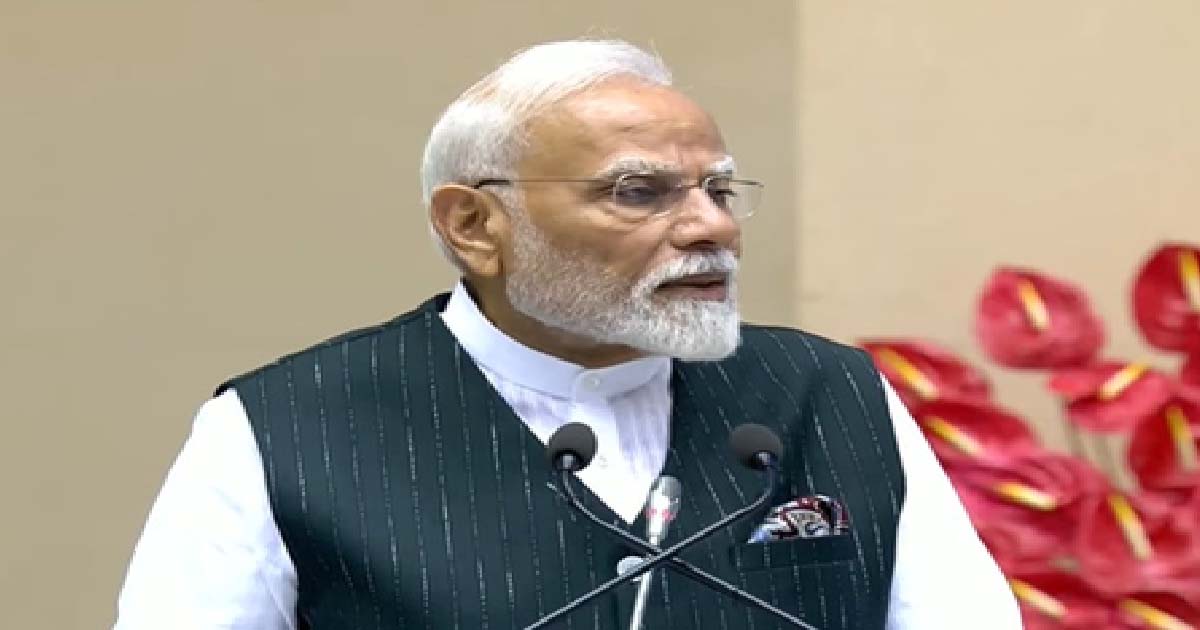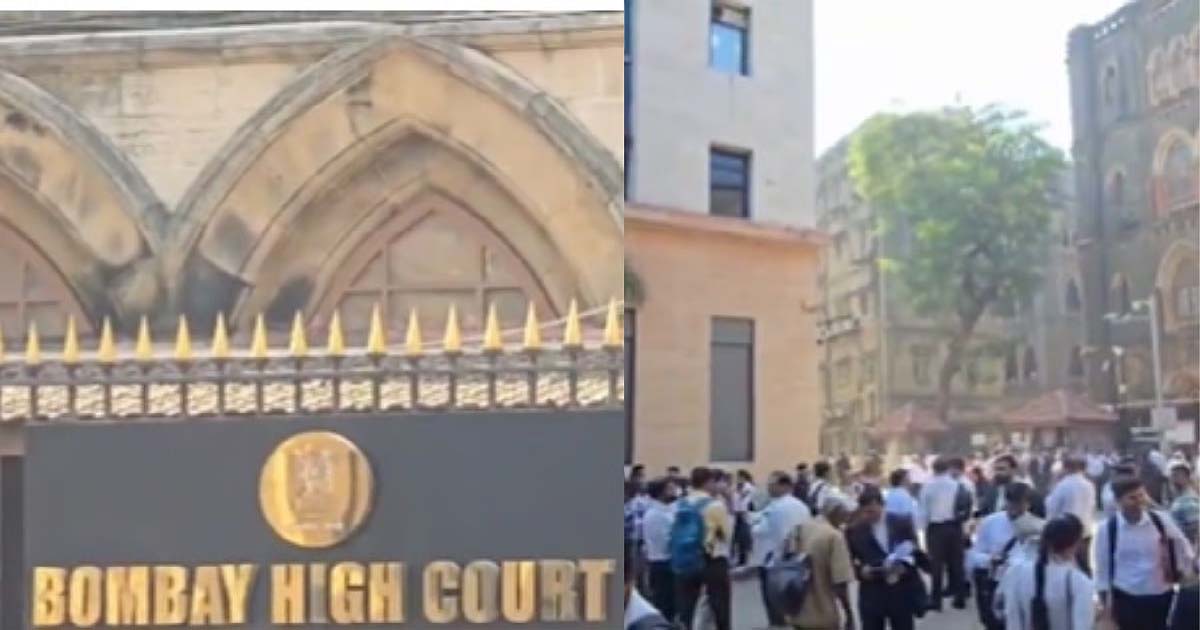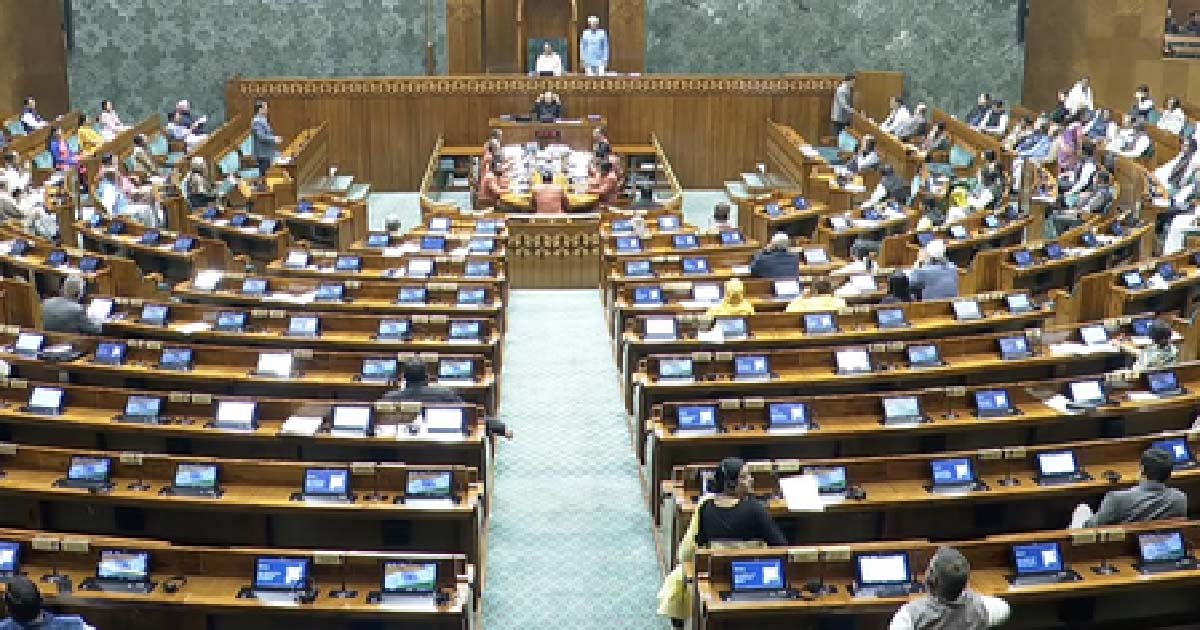National News
Civil servants’ role crucial in achieving Viksit Bharat, says PM Modi on Civil Services Day

New Delhi, April 21: Prime Minister Narendra Modi on Monday addressed the 17th Civil Services Day programme in the national capital, lauding the relentless efforts of India’s civil servants and underlining their key role in realising the dream of a ‘Viksit Bharat.’
Speaking at Vigyan Bhawan, PM Modi paid rich tributes to Sardar Vallabhbhai Patel, recalling his iconic 1947 address in which he called civil servants the “steel frame” of India.
“This Civil Services Day is special for several reasons. We are celebrating 75 years of our Constitution and the 150th birth anniversary of Sardar Vallabhbhai Patel. On April 21, 1947, he had described you (civil servants) as the steel frame of India,” he said.
Reflecting on Patel’s vision, the Prime Minister said, “He laid out the ideals of a civil servant — one who serves the nation with honesty, discipline, democratic spirit, and dedication. These lessons of Sardar Patel become even more relevant as we move towards the resolution of Viksit Bharat.”
PM Modi said that achieving the dream of a Viksit Bharat will require every arm of progress to work in synergy.
“Our bureaucracy and policy-making cannot function with outdated methods when the world is evolving so quickly. Our young generation is growing up with rapid technological changes, new gadgets every two to three years. We must match this pace,” he stated.
Highlighting areas where India must grow — from clean energy to sports and space — the Prime Minister stressed, “Everyone is looking towards you (civil servants). You have a big responsibility to help India become the world’s third-largest economy. We must work together to ensure this goal is achieved.”
This year’s theme for Civil Services Day is ‘Holistic Development of India,’ which the Prime Minister explained as “no village left behind, no family left behind.”
He also presented the Prime Minister’s Awards for Excellence in Public Administration, recognising top-performing officials behind initiatives like PM Vishwakarma, Poshan Tracker, Siksha Setu Axom, and Sugamya Pustakalaya.
“Good governance is not defined by the number of schemes but by the impact it creates on the ground,” he said. Citing examples, he mentioned districts where solar power and improved attendance systems have shown positive results and praised the efforts of public administrators across the country.
He added that in the last decade, India has moved beyond incremental progress to transformative change.
“Today, India’s governance model focuses on next-generation reforms. Through technology and innovation, we’re bridging the gap between government and citizens. These changes are visible not only in urban and rural areas but also in remote corners of the country,” he said.
PM Modi cited Bhagalpur in Bihar, where the registration of pregnant women in Jagdishpur block rose from 25 per cent to over 90 per cent. In Marwah block of Jammu and Kashmir, institutional deliveries increased from 30 per cent to 100 per cent, reflecting improved healthcare access.
Touching upon India’s global leadership, the Prime Minister highlighted the scale of its G20 presidency. “For the first time in G20 history, more than 200 meetings took place across over 60 cities, creating a wide and inclusive footprint. This is the holistic approach of today’s India,” he said, adding, “India is not just participating — India is leading.”
He noted that while many now talk about government efficiency, India is already ahead of other countries by a decade. “We have eliminated delays and are creating new processes. Over 40,000 compliances have been removed to boost ease of doing business,” he said.
The Prime Minister recalled early opposition to reforms, including compliance reduction and decriminalisation of business errors.
He said that the foundation laid over the past decade has greatly strengthened the path towards Viksit Bharat 2047.
“We cannot evaluate our work or performance by comparing it to previous governments…We must set our own benchmarks. We need to measure how far we still are from the goal of a ‘Viksit Bharat by 2047’. The time for tallying up what we have achieved so far is over.
“India is now the most populous country in the world. Ensuring saturation of basic facilities should be our top priority,” the Prime Minister added.
“In the last ten years, we built 4 crore (40 million) permanent houses for the poor, but now we have a target of building 3 crore more. We have provided tap water connections to 12 crore homes in 5–6 years. Now, we must ensure every household has access to tap water as soon as possible. In ten years, we have built over 11 crore toilets for the poor. Now, we need to quickly achieve new targets related to waste management,” he mentioned.
He also launched two e-books — Holistic Development of Districts and Select Innovations — and honoured top-performing districts in schemes like Ayushman Bharat Yojana, PM Vishwakarma Yojana, Har Ghar Jal, and PM Awas Yojana.
Awarded districts included Rajkot in Gujarat, Gomti in Tripura, Tinsukia in Assam, Kupwara in Jammu and Kashmir, and Koraput in Odisha.
Blocks recognised under the Aspirational Block Programme included Gamharia (Jharkhand), Parappa (Kerala), Narnoor (Telangana), Ganganagar (Tripura), and Rama (Madhya Pradesh).
National News
Mumbai: Multiple Courts, Including Bombay HC, Evacuated After Bomb Threat Triggers Security Alert

Mumbai: A panic broke out at the Bombay High Court on Thursday, December 18, after authorities received a bomb threat, prompting an immediate evacuation of the premises. Security across the area was tightened as a precautionary measure. bomb threats were also received at several magistrate courts, including Bandra, Andheri, and Esplanade.
The Bandra Metropolitan Court also received a bomb threat via email, triggering an immediate response from the Mumbai Police and the bomb squad.
Soon after the threat was received, security teams rushed to the court premises and carried out a thorough search. However, no suspicious object was found during the inspection. Mumbai Police have also launched an investigation to trace the source of the threatening email, identify the sender, and ascertain the motive behind it.
Similarly, in Nagpur, the District and Sessions Court received an email in the morning claiming that two RDX-based explosive devices would soon go off in the building. The email prompted the police to launch an immediate search of the court, which is located in the Civil Lines area. However, the threat turned out to be a hoax as nothing suspicious was found.
Earlier in September, the Azad Maidan police had registered an FIR against an unidentified person for allegedly sending a hoax email about a bomb threat to the Bombay High Court. The case was filed under Sections 353(1) and 353(2) of the Bharatiya Nyaya Sanhita for statements causing public mischief.
According to police, the email claimed that a blast would occur inside the court premises, triggering panic just hours after a similar threat was reported in Delhi. The High Court suspended hearings for nearly two hours, and the entire building was evacuated as a precaution
Crime
Mumbai: Mazgaon Court Stenographer Held For Demanding ₹15 Lakh Bribe, Approaches Special ACB Court For Bail

Mumbai: The stenographer posted at court at Mazgaon, Chandrakant Vasudev, was arrested allegedly for demanding and accepting bribes allegedly on behalf of the Additional Sessions Judge, Civil Sessions Court, Court No. 14, Mazagon. Aejazuddin S. Kazi has again approached the special ACB court for bail. The plea is likely to be heard on Thursday.
Vasudev was arrested on November 10 for allegedly accepting a bribe of Rs 15 lakh in exchange for a favourable verdict in a land dispute case. The special court rejected his first bail plea on November 24. A second bail plea claims no need for further incarceration and investigation can proceed without detaining him.
The prosecution claims Vasudev told the agency that Kazi had instructed him to demand the bribe, and after accepting the amount, Kazi asked him to bring it to his residence. It allegedly started on September 09 when Vasudev told the complainant’s associate in the court washroom to “do something for Saheb (the Judge), and the order will be in your favour”. He later demanded Rs 10 lakh for himself and Rs 15 lakh for the judge at a café. After refusal, he threatened via WhatsApp.
National News
Ruckus in LS as Oppn demands VB-G Ram G Bill to be referred to Standing Committee or JPC

New Delhi, Dec 18: The Lok Sabha descended into pandemonium on Thursday as Union Minister for Agriculture and Rural Development Shivraj Singh Chouhan attempted to deliver the government’s reply on the Viksit Bharat – Guarantee for Rozgar and Ajeevika Mission (Gramin) Bill, 2025 (VB-G RAM-G Bill), amid relentless sloganeering and protests from the opposition benches.
Congress MP K.C. Venugopal urgently pressed Speaker Om Birla to refer the Bill — which proposes replacing the Mahatma Gandhi National Rural Employment Guarantee Act (MGNREGA) with a framework guaranteeing 125 days of wage employment annually — to a Standing Committee or Joint Parliamentary Committee (JPC) for thorough examination.
The Speaker rejected the plea, highlighting that the Bill had already been debated for over eight hours, extending late into the previous night.
Defying the uproar, Minister Chouhan pressed on with his speech, emphasising enhanced provisions under the new legislation.
“With a whopping allocation and more employment opportunities, we are creating provisions for fully developed (sampoorna viksit) villages — this is the Modi government’s objective,” he stated.
The Bill’s name itself reflects its guarantee of employment and improved livelihoods, he added, aligning it with Prime Minister Narendra Modi’s vision.
Minister Chouhan portrayed the initiative as building a prosperous India, with plans for ideal villages equipped with all basic amenities, employment, better livelihoods, and facilities right at the village level, in line with the Viksit Bharat @2047 goal.
“PM Modi has envisioned a slew of amenities for self-reliant villages,” he asserted, undeterred by interruptions.
He also said that the Congress party had curtailed the budget from Rs 40,000 crore to Rs 35,000 crore, “while we will spend more than Rs 95,000 crore under the new scheme”.
The Bill has drawn sharp criticism from the Opposition for allegedly weakening MGNREGA’s demand-driven guarantees, shifting costs to states, and removing Mahatma Gandhi’s name — a move decried as an insult to the Father of the Nation. Supporters, however, counter that it modernises rural empowerment, boosts days from 100 to 125, and promotes convergence for infrastructure and saturation coverage.
-

 Crime3 years ago
Crime3 years agoClass 10 student jumps to death in Jaipur
-

 Maharashtra1 year ago
Maharashtra1 year agoMumbai Local Train Update: Central Railway’s New Timetable Comes Into Effect; Check Full List Of Revised Timings & Stations
-

 Maharashtra1 year ago
Maharashtra1 year agoMumbai To Go Toll-Free Tonight! Maharashtra Govt Announces Complete Toll Waiver For Light Motor Vehicles At All 5 Entry Points Of City
-

 Maharashtra1 year ago
Maharashtra1 year agoFalse photo of Imtiaz Jaleel’s rally, exposing the fooling conspiracy
-

 National News1 year ago
National News1 year agoMinistry of Railways rolls out Special Drive 4.0 with focus on digitisation, cleanliness, inclusiveness and grievance redressal
-

 Maharashtra1 year ago
Maharashtra1 year agoMaharashtra Elections 2024: Mumbai Metro & BEST Services Extended Till Midnight On Voting Day
-

 National News1 year ago
National News1 year agoJ&K: 4 Jawans Killed, 28 Injured After Bus Carrying BSF Personnel For Poll Duty Falls Into Gorge In Budgam; Terrifying Visuals Surface
-

 Crime1 year ago
Crime1 year agoBaba Siddique Murder: Mumbai Police Unable To Get Lawrence Bishnoi Custody Due To Home Ministry Order, Says Report












